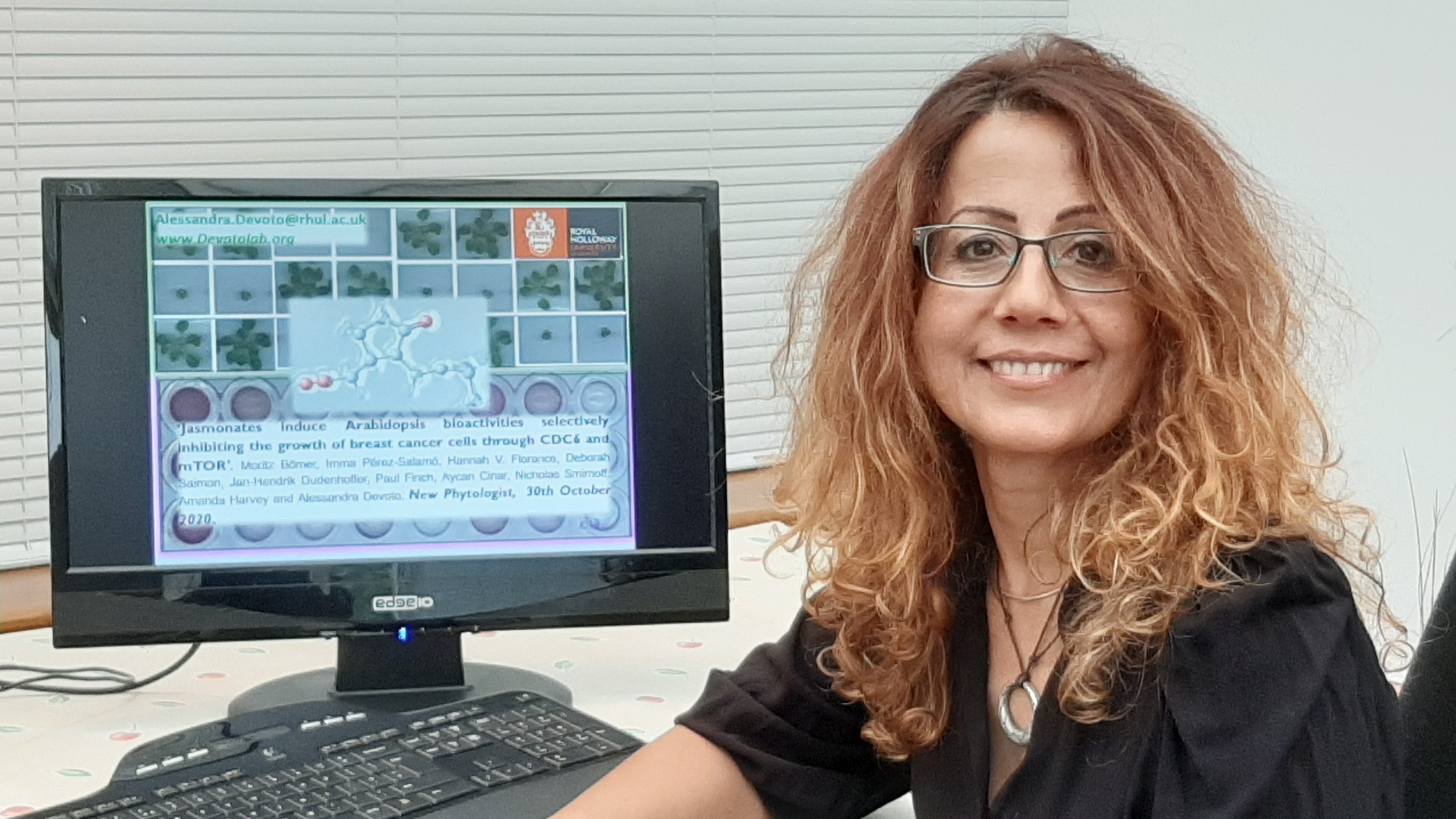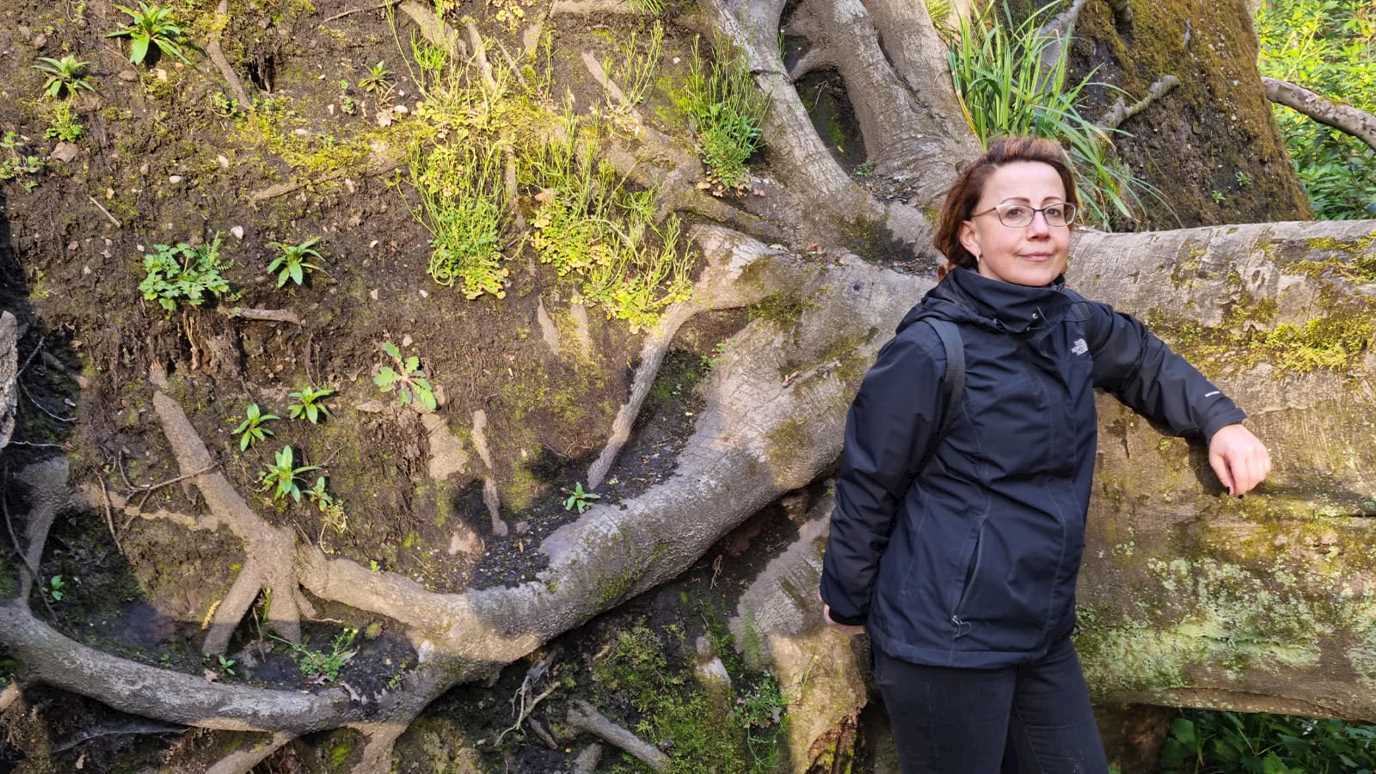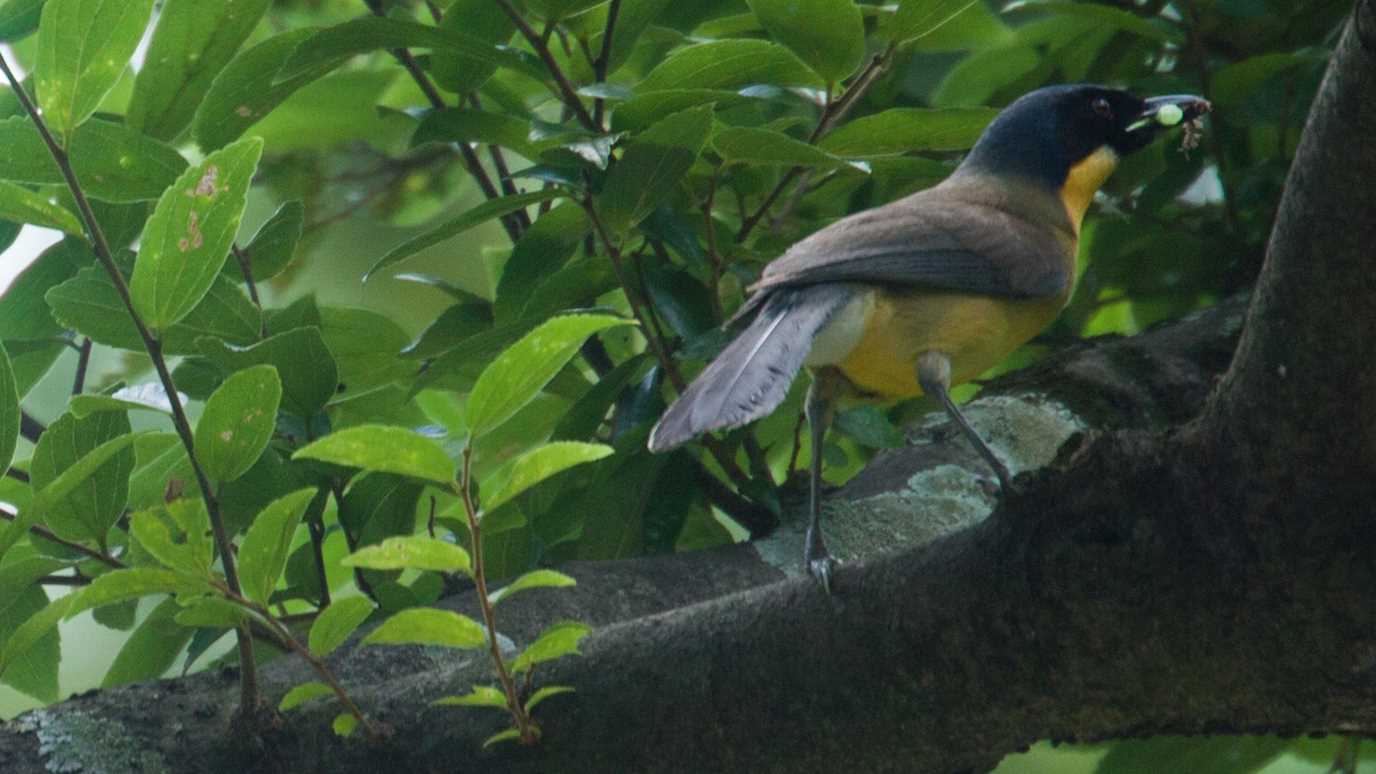Find out what inspired Professor Alessandra Devoto, current Deputy Head of the Department of Biological Sciences to pursue a career in Plant Molecular Sciences.

1. Could you tell us a bit about yourself and your role within the Department of Biological Sciences?
I am Professor of Molecular Plant Biology and currently Deputy Head of the Department of Biological Sciences. Born and educated in Italy I came to the UK in 1997. After appointments with one of the best institutes for plant sciences in Europe, The Sainsbury Laboratory in Norwich, thanks to a prestigious Marie Skłodowska Curie fellowship, and the University of East Anglia, I joined Royal Holloway in 2006 as a Senior Lecturer, and then worked my way up to Professor. I am involved in both research and teaching spanning from biochemistry, molecular biology, functional genomics, and bioinformatics to plant responses to stress and climate change as well as on biotechnological applications for human health and energy production.
2. What are your research interests?
I use ‘omics’ data (BIG DATA) to elucidate important aspects of plant responses to stress that are regulated by hormones, such as jasmonates, and translate fundamental work in model plants to crops using systems biology methodologies to enhance the understanding, and expedite breeding for resistance to environmental stress.
3. What projects are you currently working on?
I have had during the years several funded research programs the led to significant publication outputs. I developed methodologies to exploiting plant and microorganism genetics to establish sustainable treatment solution to enhance crop value and increase on-farm renewable energy production and recycling of nutrients.
Through long standing collaborations with Japan I have analysed plant responses to drought and how to improve them.
I also became interested on researching the medicinal properties of plants and discovered the effect of bioactives on breast cancer cells and recently my research made a splash in the news on our College website and in The Times here!
4. What inspired you to pursue a career in Plant Molecular Sciences?
I have always been passionate with nature and in particular the molecular mechanisms regulating plant responses to the environment. Despite being born and raised up in a big city like Rome, I have always dreamt of ‘making a difference’ by working with plants to help people and the planet! I chose to study Biology at the University of Rome ‘Sapienza’ where I earned a BSc and MSc before embarking on a PhD in Plant Molecular Biology. I have never regretted my choice and have been enjoying the curiosity-driven process that underpins fundamental research ever since, having also been inspired by fantastic and dedicated mentors throughout my career.
5. What does this year’s theme of ‘#BreakTheBias’ means to you and your subject area of expertise?
When I joined Royal Holloway I was the third female academic staff out of 30+ academics. I covered several administrative roles, and one I am particularly proud of was the role as Athena Swan and Equality and Diversity Champion between 2012 and 2021 that brought two awards to the Department of Biological Sciences in 2014 and 2018. Several activities to support personal and professional development of female students, researchers and staff were developed in collaboration with the Women in Biology (@RHULWiB) scheme set up by my wonderful colleague Prof Julia Koricheva. I am also very proud of having trained up 10 female PhD students and mentored numerous undergraduate students as well as researchers. #BreakTheBias is very significant for me as science should be equally accessible to everyone and whilst things have certainly improved from my youth in terms of female representation, there is still an enormous amount to do to ‘give a voice’ to early career female students and researchers.
6. Which women in STEM inspire you from the past or present?
An obvious woman to admire for me is Dr Barbara McClintock who won a Nobel Prize in Physiology or Medicine in 1983 for discovering mobile genetic elements, establishing the grounds for breakthroughs in plant breeding and genetic engineering. I have been very fortunate in my career as I had mostly excellent support from both female and male colleagues literally everywhere I studied and worked. What I mostly admire in people are values such as integrity alongside humanity and creativity and I continue to be inspired by those with a true enthusiasm for science.























